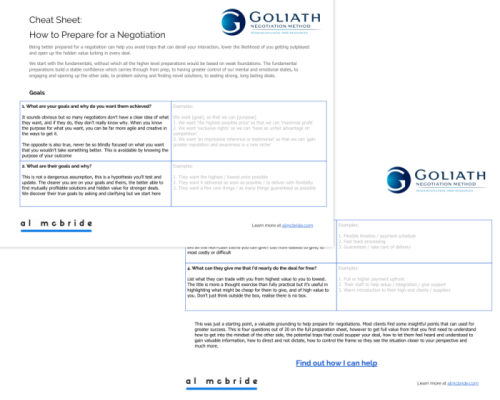
by Alistair McBride … [about a 7 minute read]
How much stress have you experienced in the last year? Do you believe that stress is harmful to your health? Is stress negatively affecting your personal and working life?
For years we’ve been told that stress is harmful. That it increases the risk of so many bad things, everything from the common cold to cardiovascular disease. Stress has been seen as evil, as something to be reduced and avoided at all costs. We’re all meant to be ‘fighting’ stress. But key health psychologists, like Stanford University’s Kelly McGonigal and many others, have radically changed their position. Let’s look at some of the ways we can change ours.
Stress is something innate in the human experience, everyone has it. In this modern world it’s usually much more than much less. Whether it’s people or devices demanding your attention, the desire to deliver on all your commitments and responsibilities, to not let people down or working hard to be all you can be and fulfil your ambitions, your own expectations or those of others. Mix all that in with all the trivial obstacles in your way; bad traffic, bad weather, bills to pay, clothes to clean and dinners to cook. It’s no wonder we are all so stressed.
But it’s not as simple as less stress is good, more stress is bad.
One of the pivotal studies tracked 30,000 adults in the US for eight years. They asked people two of the questions I’ve just asked you. ‘How much stress have you experienced in the last year?’. Next they asked, ‘do you believe that stress is harmful for your health?’. They then used public death records to find out who died.
43% Increased Risk Due to Belief
People who experience a lot of stress in the previous year had a 43% increased risk of dying. 43%! That’s the bad news.The good news is that was only true for the people who also believed that stress is harmful to your health.
People who experienced a lot of stress, but didn’t believe that stress was harmful were no more likely to die. In fact, they had the lowest risk of dying than anyone in the study including people who had relatively little stress.
So the researchers estimated that over the time they were tracking deaths, 182,000 Americans died prematurely. That’s over 20,000 deaths a year. That means ‘believing stress is bad for you’, is the 15th largest cause of death in the USA, killing more people than skin cancer, HIV aids and homicide.
This crucial new revelation was that it was not stress. Instead they died from the belief that stress was bad for you! Of course, the good thing about beliefs, is that we can learn to change our beliefs.
It’s not your fault. We’ve all been told stress is bad for your health, stress is a killer. In a dark irony, that thought has actually been doing much of the damage! Relax, you still have time to turn stress from your enemy to your ally.
What Does It Mean?
Think about that. Changing only your belief, your perception can make a massive difference to whether a situation does harm to your health, or does no harm at all.
When you change your mind about stress, you can change your body’s response to that stress.
My mentor, business and life strategist Tony Robbins, tells the story of two separate conversations with two musicians. He asked them what do they feel like just before they go on stage. The first said, “my hands get sweaty, my mouth goes dry, I get dizzy and feel light headed and have butterflies in the pit of my stomach and… and I just can’t go on”.
He asked the other a few years later. He said, “my head’s spinning, I’ve nerves in the pit of my stomach, my hands gets sweaty and my mouth is dry, I’m shaking and…. and then I know I’m ready, to jump on stage and give them the best show they’ll see all year!”
The first was Carly Simon, whose career suffered from her stage fright. The second was Bruce Springsteen, known as ‘the Boss’ for a reason. His stage shows are legendary for the energy he brings to his performances.
It was the same stress sensations and stress response building up in their bodies. But one saw it as bad and it crippled them. The other framed it as a positive. His body and mind getting ready for an explosion of emotion, giving him the edge to give another great performance.
What Carly Simon felt is referred to as ‘Distress’, the usual negative form of stress. What Springsteen felt was what scientists call, ‘Eustress’, the positive, empowering kind of stress. (Coming from Eu the Greek for good, so ‘good stress‘).
We all want to be ‘the boss’, on whatever stage we perform. But sometimes we’re more like Carly Simon. Usually in normal life it’s just not as obvious how stress reduces or impedes our performance. In the day to day, it’s much more subtle than that.
Change your belief, the meaning that you give to a situation, and you’ll change your whole relationship with stress. You need to get yourself back in control. How do you do that best?
What’s the Problem?
First of all, if you’re most people, the problem is bigger than you think. Stress is an umbrella term for types of fear that affect your body and mind and diminish your performance at work and life.
Do you ever experience overwhelm, anxiety, tension, anger, frustration, procrastination, depression, passive aggression, worry? Do you know how to handle it in others to get their better selves to turn up?
Let’s get specific with a few examples. Have you ever been fearful or reluctant to contact a client for feedback on your product or service in case there’s a difficulty?
Because of this avoidance, you’re missing out on constructive feedback and the chance to address their concerns. This also means you risk losing their business and any opportunities gained by improving your offering.
Do you feel confident in negotiations and sales meetings with your clients, or do you feel nervous that you or your business aren’t capable of delivering on your promises?
Overwhelm scatters your attention and focus, wastes your resources and prevents you from properly using your skills to their full potential. That’s just the tip of the iceberg of stress induced under performance that’s selling you and your business short and causing you to leave money on the table.
The impact is wider than just you. If you’re running your own business you have to show up at your best level not just for your clients but your staff too. If your staff are going to do their best work they need to be lead by example, through work with a clear sense of purpose. You can’t do that if your better self is not turning up.
Do you take work stress home with you? Do you snap at loved ones? Or find you’re not able to be as present with them because you’re re-living something from your work day? Or anxious about something in the next day? You’re not alone, it’s a normal human issue. But thankfully there is a way through.
Get A Coach
If any of these examples strike a chord, then it’s time to rise up to the challenge of stress in it’s many forms and do something about it.
Take the parallel of going to a gym. If you start training without a plan, then you’ll get very little results or change. If you get a personal trainer even for a few sessions, your progress will rocket. Why? Because they’ve helped hundreds of others just like you, they give you principles and insights that empower you and help you create a plan specific to your needs.
The key is learning how you can change your beliefs and perspectives. It’s all about how you choose to perceive your stress and your life conditions. It’s all about the meaning you give it, moving stress from a threat to a challenge.
So now you know there’s good stress and bad stress.
Bad stress comes in many forms that leads to:
- Under-performance
- Loss of profits
- Missed opportunities in your business
- Poorer client relationships
- Reduced happiness and fulfilment in your life
There’s a better way, a set of scientifically proven strategies and tools to move you from stress to greater success.
From the crippling ‘Distress’ to empowering ‘Eustress’.
We want to change our perceptions of stress so it becomes:
- Short lived and manageable.
- Remove trivial irritating stress through systems.
- Flip it to use it as fuel to fire us forward, to get us more regularly into those flow states.
Flow states are where the perceived challenge is just right for our abilities. It’s challenging but possible not either boring or overwhelming. It’s often where we’re hyper productive and get our most inspirational and best work done.
You can discover how to do all this through tried and tested strategies and tools.
Do you feel you’re only surviving in business but want to be thriving? Do you want to reduce that sense of uncertainty while increasing your productivity without putting in more hours?
If so, you need to learn how to take control of your mental and emotional states, so that you can then change your state to one that serves you better. But first you need to know where you truly are.
You need to know how stress is effecting you, before you can take truly take control of it.
If it’s time to change your relationship with stress then the answer for you is the RISE Program (Resilience Insight Strategy Elevation)
Start by Getting your FREE Personalised Report to discover exactly how stress is affecting you and what you can do to flip it and supercharge your productivity.
Click the button below to receive your FREE personalised Stress Report from the RISE Program.

